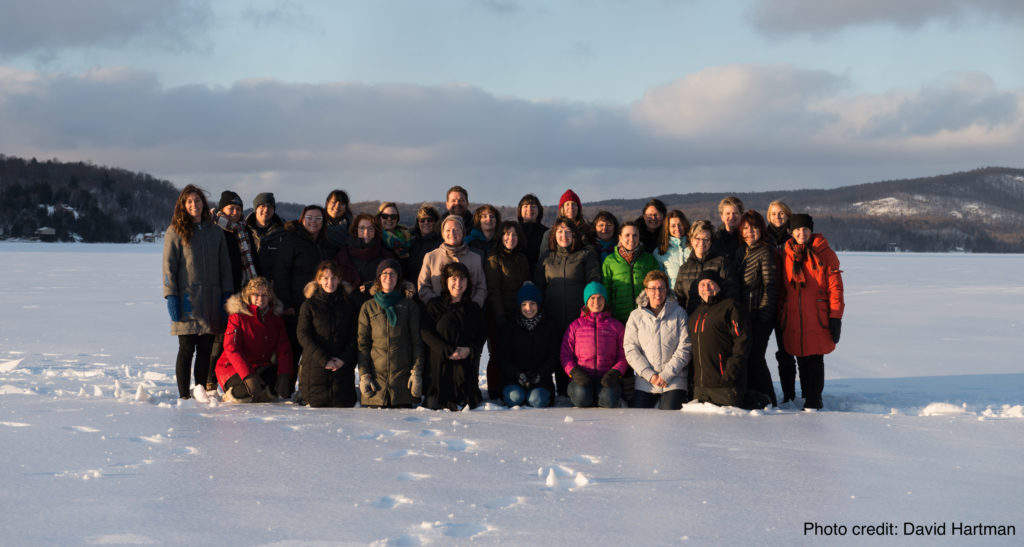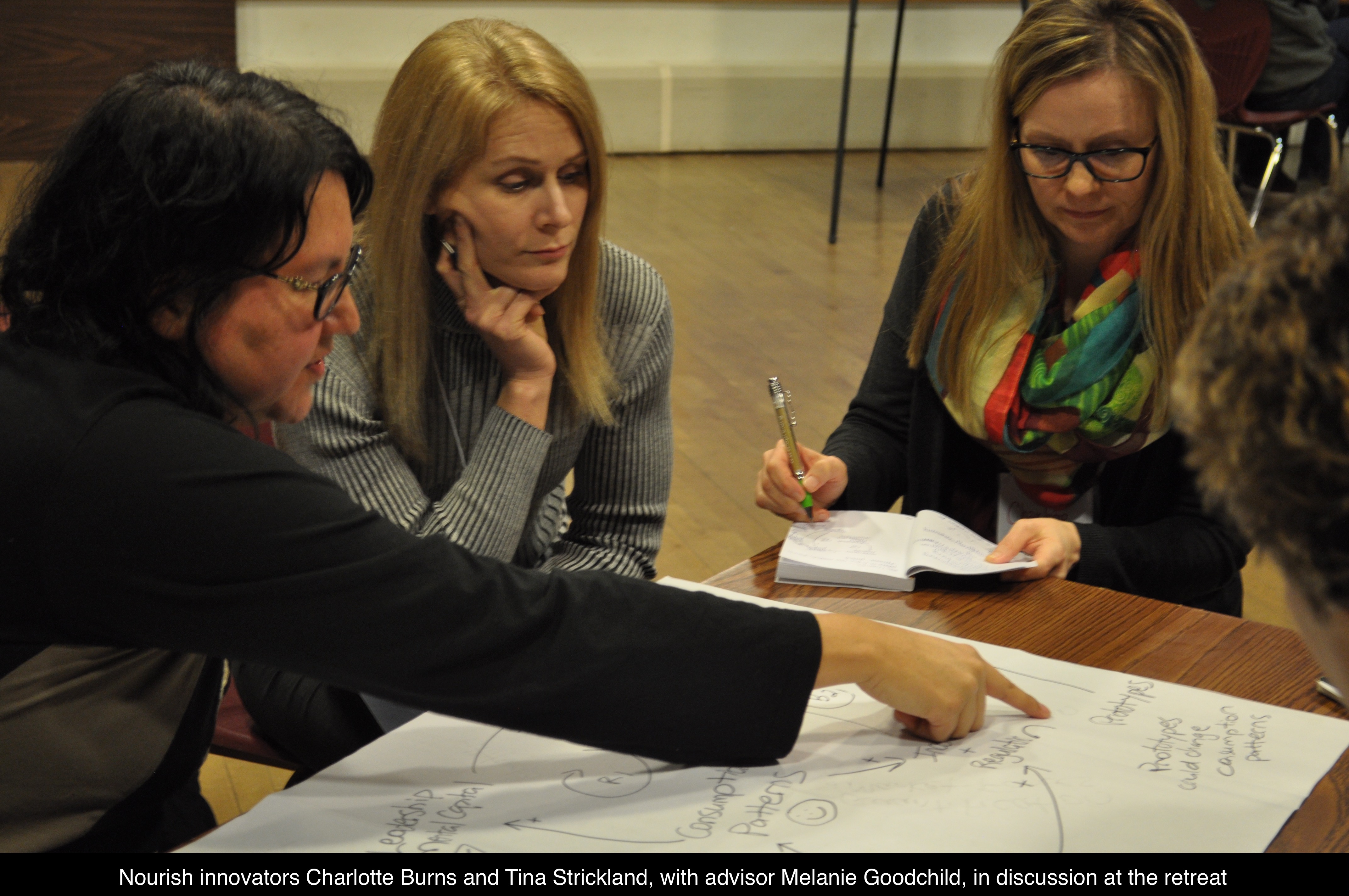The Future of Food in Healthcare
The following blog post is written by our Academy Fellow, Beth Hunter. Beth is Program Director at the J.W. McConnell Family Foundation, where she has worked since 2010, focusing primarily on the Sustainable Food Systems initiative.
—
My heart is SO full.
We have just launched Nourish, an initiative on the future of food and health care focused on a two-year program for 25 leaders in healthcare facilities across Canada. I want to share how much this community of practice owes to the Academy for Systems Change (an official partner in the program) and my experience as an Academy Fellow.
Nourish aims to bring food into a more central role in health care, recognizing its critical role in preventative health, as well as the economic, environmental and social importance of local and sustainable food. The innovators in the program and the advisors working with us include participants from across Canada, and we work hard to be inclusive of languages (including translating most documents and events in both French and English) and cultures including indigenous communities. You can find out a lot more on our website, which will soon include more detailed profiles of the innovators, their organizations and what they’re working to do — everything from working towards less waste and more healthy and delicious menus, to hospital gardens, to procurement of local and sustainable food.

Nourish Retreat, 2017
I couldn’t be more delighted with our first Nourish retreat, and want to highlight some of the areas where awareness-based systemic change approaches are included in the program:
Facilitation
When bringing together and facilitating the meet-ups of these 25 leaders, in collaboration with my talented colleagues, I drew on lessons learned during the last Academy Fellows Gathering at the end of 2016. During one of the Open Sessions at this gathering, we discussed how to use an awareness-based approach without scaring people off, examining tools that have worked and haven’t, tricks, ideas and advice. In the context of Nourish, what was particularly important was recognizing that people really appreciate the invitation to take space – it’s a gift they rise to. It’s also important to get people to open their mouths early so we designed the early sessions around asking questions that require participation. You’re not in the meeting until your voice is in the room – but it doesn’t need to be heard by all, so smaller groups can be used to create a safe environment where even the most nervous of participants can start to speak.
We were transparent in why we were using certain facilitation techniques (‘we’re getting into small groups because we find it effective to….’), and tried to manage expectations so people weren’t surprised or disappointed, for example expecting to hear a two-hour speech and instead being presented with an interactive workshop. We made space for journaling and moments of silence or meditation, including a breathing exercise taught to me by Academy Fellow Yunlan Ni. At the end of the retreat, we asked participants to write a letter to themselves about what’s inspiring them and what they hope to accomplish. We’ll mail these letters back to each of them in two months.
We included a session on Personal Leadership, led by Academy co-Founder and Board Member Hal Hamilton, where Hal told a story of a ‘crucible’ moment when he realized what his forte as a leader was. Breaking out into groups, participants were asked to share a similar story while the others in the smaller groups took notes on the qualities/competencies this demonstrated, and which make them great leaders. In addition, Academy Faculty member, Carol MacKinnon, introduced participants to the concept of leader coaching to support them in leading organizational change.
Open Space and Learning Journeys
Two Open Space sessions were used to discuss issues of common interest and to start developing collaborative projects, and we used the Sustainable Food Lab‘s methodology to run half-day learning journeys to four local farms, drawing on advice from Leanne Grillo, Stephanie Daniels and Hal. These were highly appreciated, and I think that for several participants who hadn’t had much contact with farms or farmers, the learning journeys literally transformed their perspectives.
In addition to the retreat, we have:
- One-to-one coaching set up for every participant, using the Leaders Coaching approach with Academy Faculty Carol MacKinnon’s support.
- Peer learning circles (5 people plus a facilitator) which are using the Case Clinic On-line 1:1 coaching and peer groups are powerful methods that the Academy has used in its Next Generation leaders program.
- A series of webinars planned –Nourish leaders are being encouraged to invite their colleagues to participate, broadening the circle of influence and engagement.
Being a part of the Academy for Systems Change has helped me add deep value to the Nourish program, both in terms of the tools and processes being used, as well as people who are enriching the program. I’m excited to see how the Nourish leaders grow and develop as a group, and how their personal development, organizations projects and ultimately the food and health care systems will benefit as a result. Check out the website for more information.

